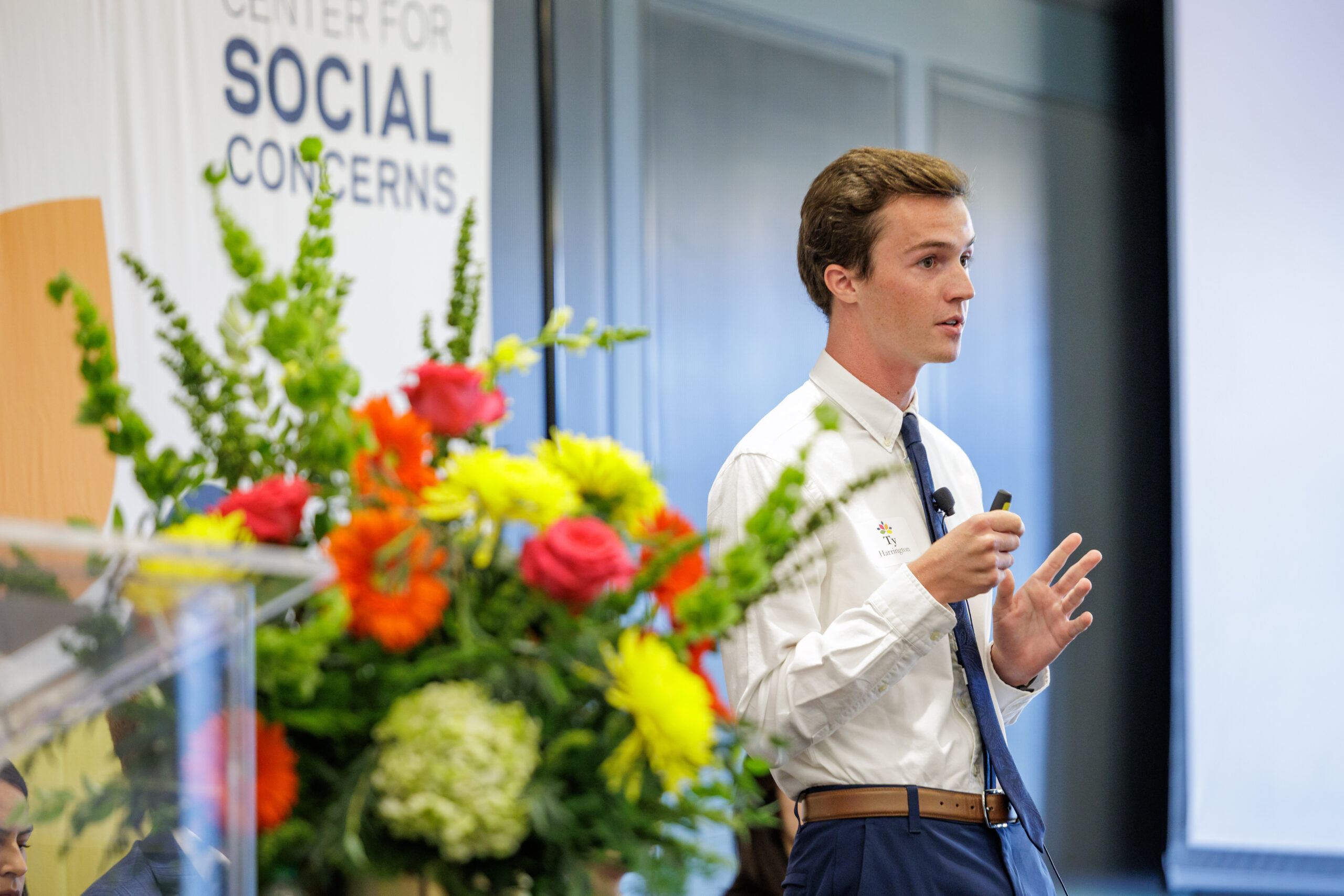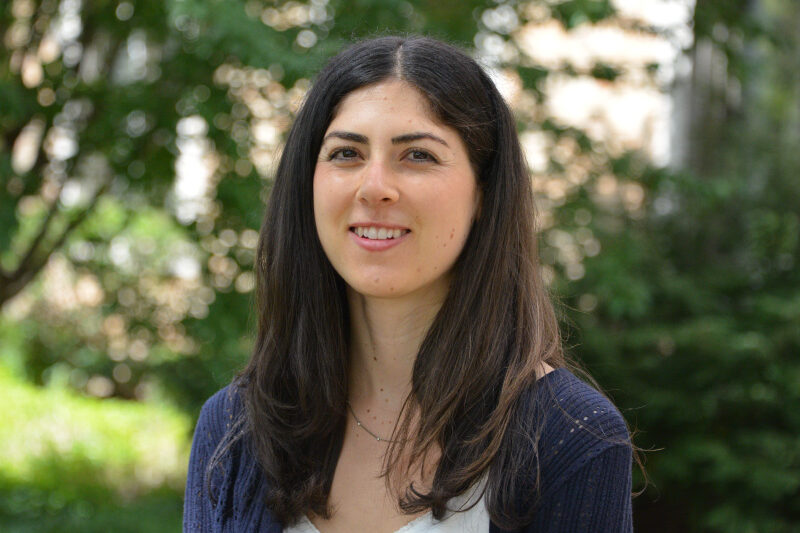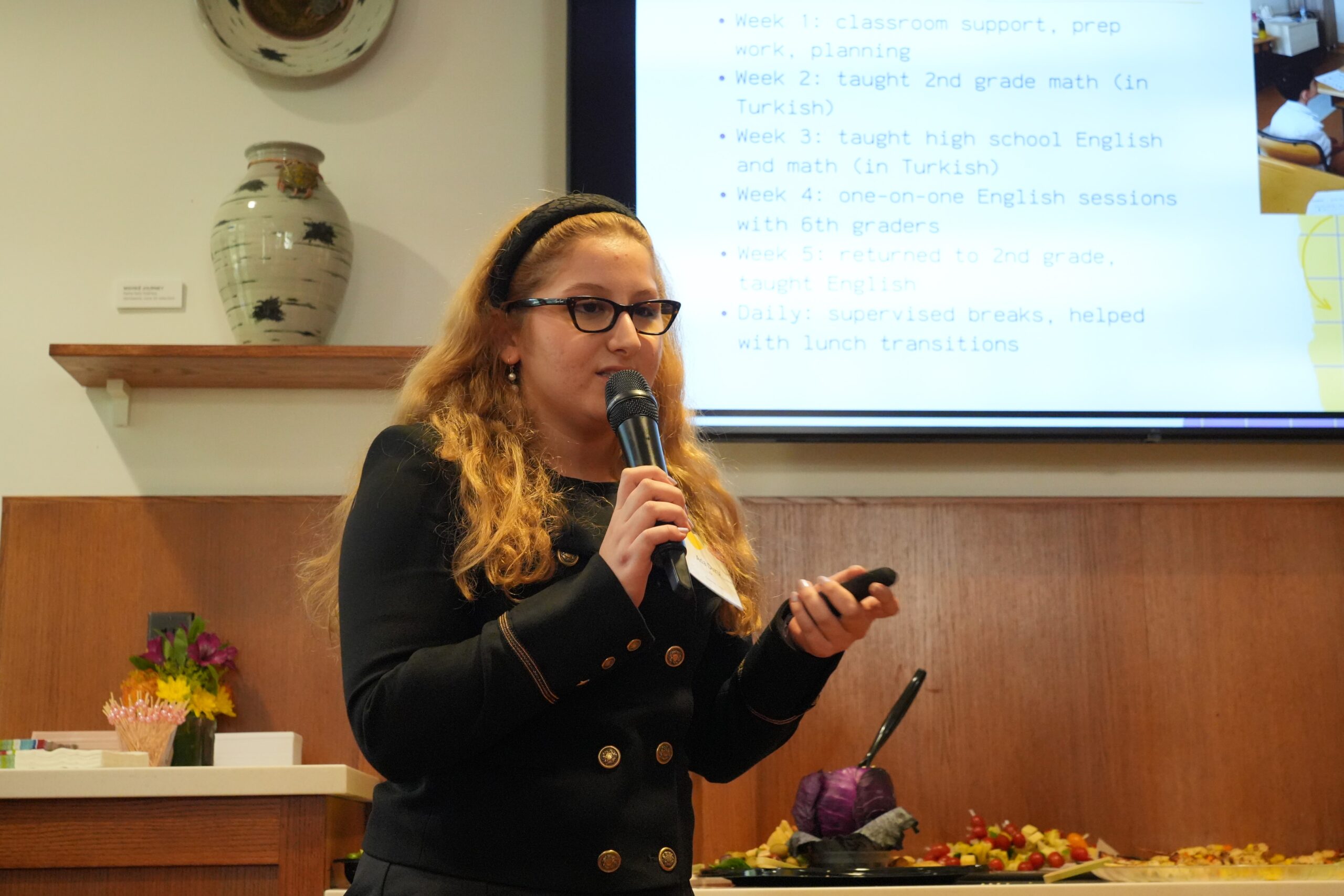ReSearching for the Common Good: Solbee Kang
September 17, 2024
As an interdisciplinary academic institute, the Institute for Social Concerns leverages research to respond to the complex demands of justice and to serve the common good. This series, ReSearching for the Common Good, highlights some of the scholars in our community.

Solbee Kang is an electrical engineering major with a minor in studio art and design from Seoul, South Korea. On campus, she works for Notre Dame’s Wireless Institute, which provides collaborative research and education to advance wireless technologies and radio spectrum access for the public good. She is one of 11 Notre Dame students selected for the 2024–25 cohort of McNeill Common Good Fellows at the Institute for Social Concerns and one of 22 Notre Dame student awardees for the 2025–26 cohort of the Naughton Fellowship. Through the fellowship, she researched surgical navigation using magnetic tracking technology for image-guided interventions at University College Cork, Ireland, this past summer.
What are you researching? And how do you see it advancing the common good?
As an electrical engineering student, I am researching wireless communications at Notre Dame’s Wireless Institute. Recently, I have focused specifically on the implications of satellite internet services like Starlink. While satellite internet is advertised to enhance connectivity for rural and marginalized communities without access to broadband internet, it still fails to meet the minimum standards for reliable internet set by the Federal Communications Commission (FCC). In addition, the cheapest initial setup costs easily exceed a couple hundred dollars, with recurring fees of $120+ that further burden low-income users, making it out of reach and unsustainable for the communities it advertises to and intends to serve.
My research critically assesses the reliability of satellite internet and its potential to address digital equity. I also examine the ethical and safety concerns of privatizing internet access, as seen in situations like the war in Ukraine, where a single entity can control connectivity. In addition, there are concerns with satellite internet causing potential interference issues with airline tracking systems or GPS technology in vehicles. And at the same time, at the Wireless Institute, I explore the benefits and innovation that the new technology and investment can bring with satellite. By exploring both the potential and the concerns of satellite internet as well as potential safe and affordable alternatives, such as community broadband initiatives, my work aims to ensure that technological advancements serve marginalized communities effectively.
How did you become interested in this research?
My interest in wireless connectivity was sparked by my personal experiences as an international student relying heavily on wireless connectivity to talk with family every day. I then became interested in public policy questions around wireless technology when I attended a talk by Darrah Blackwater, a lawyer working with the Collaboratory for Indigenous Data Governance that focuses on Indigenous Data Sovereignty. Her talk highlighted the injustices faced by Indigenous communities regarding their rights to the radio spectrum.
Darrah connected me to the Institute for Local Self-Reliance (ILSR) who works on community broadband networks to promote locally rooted, democratically accountable broadband networks that provide fast, affordable, and reliable internet access to all Americans. In addition to working with ILSR last summer, I was also able to attend the EU Spectrum Management Conference, which focused on global digital equity challenges. I didn’t know anyone, and I think I was the only student there! But it was a fascinating experience, as I learned that, at the global level, there’s a push for satellite internet, despite the policy, economic, and social impact concerns I was researching in the United States.
What has it meant to be a McNeill Common Good Fellow?
Being a McNeill Common Good Fellow has profoundly enhanced my experience at Notre Dame. The fellowship has introduced me to a diverse cohort of peers, creating a supportive environment for discussing complex issues. One of my most memorable experiences was forming a team with fellow McNeill scholars for the CST Impact Competition, where we won first place and received $10,000 to implement our project supporting Afghani women in partnership with Catholic Charities San Antonio’s Sewing for Success program. This collaboration has opened doors to connect with local organizations in South Bend, allowing us to develop solutions that address community needs. Overall, the fellowship has empowered me to engage in meaningful projects, build lasting friendships, and deepen my commitment to advancing the common good through my research as an electrical engineer.
Related Stories
-
Social Concerns Summer Fellow returns to India for ongoing research
-
ReSearching for the Common Good: Solbee Kang
-
Bridging worlds through art—Kyla Walker joins institute as international poetry justice fellow
-
The power of encounter—RISE Hometown prepares incoming students for learning in service of justice at Notre Dame
-
The beauty of everyday democracy—Institute convenes scholars, practitioners, Luke Bretherton for democracy conference




